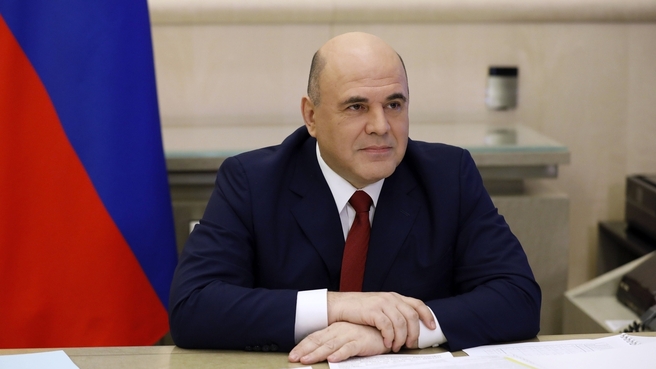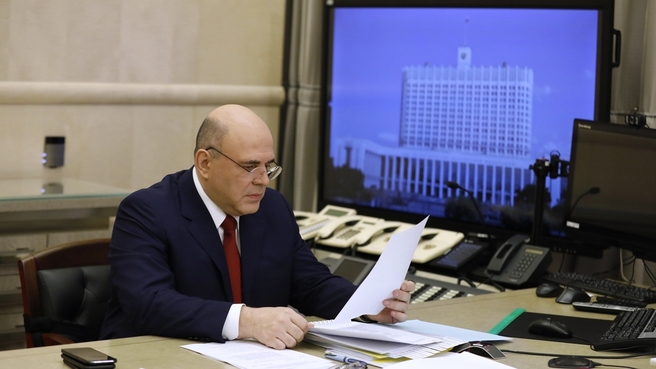The agenda includes: the Federal Targeted Investment Programme; the Customs Service Development Strategy until 2030; subsidies for Russian Railways; the specifics of the financial and economic operation of federal agencies.
Mikhail Mishustin’s opening remarks:
Good morning, colleagues, and good health to all of you!
Over the past few months we have been taking measures to counter the spread of the coronavirus infection and to support people, businesses and the economy. At the same time, no matter how complicated the current situation may be, we must work with a view to the future – create a foundation for further socioeconomic development through every opportunity and by finding new approaches. We must continue building modern schools, kindergartens, hospitals, outpatient clinics, plants and factories. When it comes to the wellbeing, health and even life of hundreds of people, bureaucratic procedures must be reduced to a minimum.
This is why we are introducing changes in the implementation of the Federal Targeted Investment Programme. It is this programme that regulates the construction of socially important facilities. I have signed a government resolution on this. Now we will be able to amend this programme for greater simplicity to eliminate long and sometimes simply excessive coordination. This year, new decisions will be made by the Presidium of the Government Commission on Regional Development of the Russian Federation; these decisions will make it possible to expedite construction and to open badly needed social facilities sooner.
In looking ahead, one more document has been approved. This is a strategy for developing the customs service to 2030. The goal is to comprehensively upgrade customs, to reform customs administration and make it more transparent, to simplify and expedite procedures for honest business. These goals will be reached, in part, by creating smart checkpoints. The automation of customs procedures, the use of integrated digital platforms and the introduction of elements of artificial intelligence and risk management systems will allow us to create a high-tech customs system in this country.
This will help make Russian products more competitive and will allow business to more actively expand its foreign trade and investment ties.
I am instructing the Finance Ministry and the Federal Customs Service, the Federal Tax Service in cooperation with other federal executive bodies – ministries and departments – to submit a plan of measures on implementing this strategy before the end of next September.
A government resolution that establishes new rules for granting federal budget subsidies to Russian Railways has been signed as well. They are aimed at reducing logistics costs and preserving the balance of prices on agricultural products in different regions of the country.
I am primarily referring to the distribution of grain, vegetables, fruit and other goods from Central Russia and Siberia to the Far East, and agricultural products from the Far East to the centre of the country. It is important to provide people in remote areas with domestic agricultural products at affordable prices. The President spoke about the importance of this issue at the recent meeting on agriculture and food industry.
The spread of the coronavirus has compelled many organisations to suspend their activity. This applies to the various federal government bodies from the most affected industries. They employ tens of thousands and it is important to support them. Now, during these forced non-working days, these institutions will be able to use the subsidies they receive to implement government contracts on various mandatory payments, primarily wages, but also taxes, duties, insurance premiums, utilities and property maintenance. Importantly, they will receive this support regardless of the amount of work fulfilled under government contracts. As a result, public institutions in the industries that were hit the hardest, will manage to guarantee a stable income for their employees in this difficult time.
The relevant directive has been signed.
Let’s start discussing the items on our agenda.
<…>














